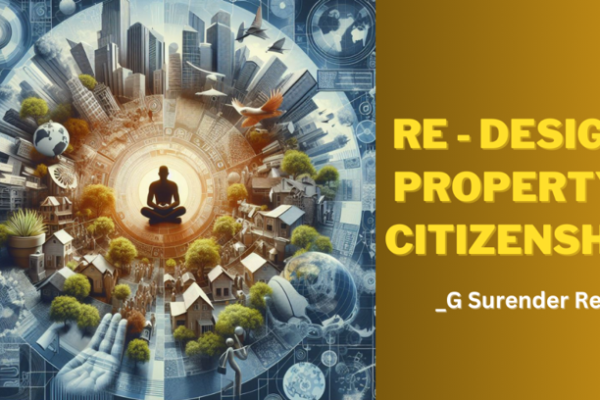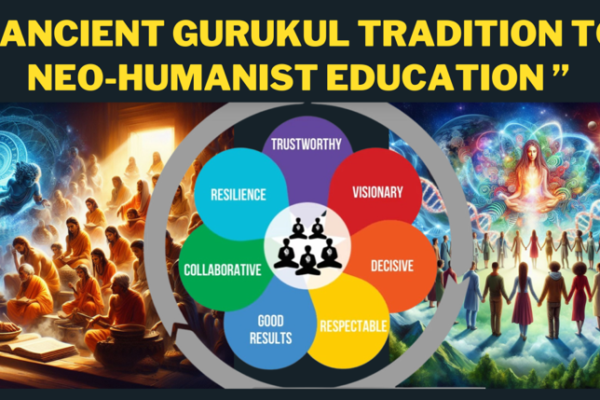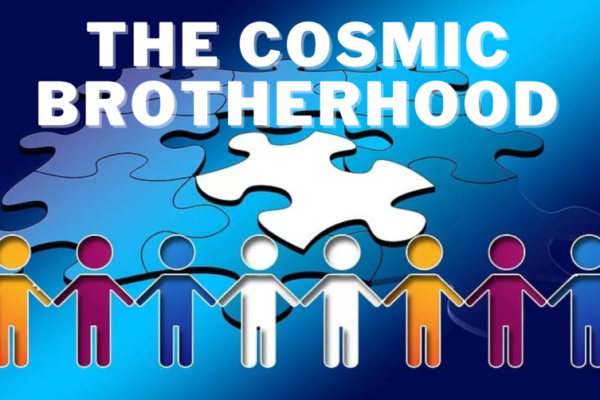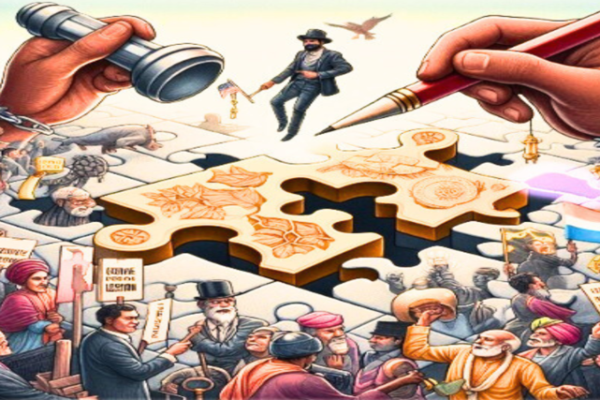– Rajendra
India, often described as a vibrant tapestry of cultures, religions, languages, and traditions, stands as a testament to the beauty of diversity. Unlike the melting pot metaphor often associated with countries like America, India is more aptly likened to a thali – a traditional Indian plate adorned with an array of dishes, each offering a unique flavor and texture. This culinary analogy serves as a powerful metaphor for understanding the intricacies of Indian civilization and its approach to diversity.
In India, diversity is not merely tolerated; it is celebrated and embraced as an integral part of the national identity. The country’s rich tapestry of cultures and traditions reflects centuries of intermingling, exchange, and coexistence. From the snow-capped peaks of the Himalayas to the sun-kissed shores of the Indian Ocean, every region of India contributes its distinct flavor to the national palette.
At the heart of India’s diversity lies the principle of unity in diversity. This principle is encapsulated in the ancient Sanskrit phrase, “Vasudhaiva Kutumbakam,” which translates to “the world is one family.” This profound philosophy underscores the interconnectedness of all beings and emphasizes the importance of mutual respect, compassion, and harmony. In essence, it echoes the spirit of inclusivity that permeates Indian society.
One of the most striking aspects of Indian civilization is its ability to accommodate myriad beliefs, practices, and identities within the framework of a cohesive whole. Unlike some societies where conformity is enforced, India thrives on pluralism, allowing individuals the freedom to express their unique identities without fear of marginalization or discrimination. In India, one can be a devout follower of any religion, a staunch advocate of any ideology, and still be considered a proud and patriotic citizen.
This ethos of acceptance and coexistence has been the bedrock of India’s soft power – its ability to influence and inspire through non-coercive means. Throughout history, India has attracted admirers from around the world, drawn not only to its ancient wisdom and cultural treasures but also to its remarkable capacity for inclusivity and tolerance. Whether through yoga, ayurveda, or the timeless teachings of figures like Mahatma Gandhi, India has offered the world a glimpse into a more harmonious way of life.
However, it would be remiss to overlook the challenges that India faces in maintaining its pluralistic ethos. In an increasingly interconnected world marked by rapid social change and technological advancement, the fabric of Indian society is constantly being tested. Religious and ethnic tensions, political polarization, and socioeconomic disparities threaten to undermine the unity and diversity that define India’s identity.
India’s socio-political landscape is marked by a complex interplay of factors that both enrich and challenge its identity. Amidst the vibrant tapestry of cultures and traditions, religious and ethnic tensions simmer, threatening the fabric of unity that defines the nation. The deeply entrenched caste system, a centuries-old social hierarchy, continues to cast its shadow, perpetuating discrimination and marginalization. Breaking free from this tradition poses significant challenges, as caste identities often dictate social interactions, economic opportunities, and even political affiliations.
Furthermore, India’s foundation on the principles of Hindu nationalism has lent a distinct flavor to its political discourse. While Hindus perceive their beliefs as universal, embracing a sense of cultural and spiritual unity, this sentiment can sometimes alienate those of differing faiths or traditions. The political landscape reflects this complexity, with debates over secularism and religious identity shaping policy decisions and public discourse. Despite efforts to foster inclusivity, the specter of religious polarization looms large, highlighting the delicate balance between preserving cultural heritage and promoting pluralism.
Navigating these fault lines requires a nuanced approach that acknowledges India’s rich diversity while addressing the entrenched inequalities that threaten social cohesion. Embracing a vision of India that celebrates its multiplicity of identities while transcending the divisions of caste, religion, and ethnicity is essential for fostering a truly inclusive society. Only through dialogue, empathy, and concerted efforts to dismantle systemic barriers can India fulfill its promise as a beacon of unity amidst diversity.
Yet, amidst these challenges, there remains hope. The resilience of the Indian people, their capacity for dialogue and reconciliation, and their unwavering commitment to the principles of pluralism offer a beacon of light in troubled times. By drawing inspiration from the thali model – embracing diversity while fostering unity – India can continue to serve as a shining example for the world.
Swami Vivekananda delivered his historic address at the World Parliament of Religions in Chicago on September 11, 1893: … but if there is ever to be a universal religion, it must be one which will have no location in place or time; which will be infinite, like the God it will preach, and whose sun will shine upon the followers of Krishna and of Christ, on saints and sinners alike; which will not be Brahminic or Buddhistic, Christian or Mohammedan, but the sum total of all these, and still have infinite space for development; which in its catholicity will embrace in its infinite arms, and find a place for, every human being, from the lowest grovelling savage not far removed from the brute, to the highest man towering by the virtues of his head and heart almost above humanity, making society stand in awe of him and doubt his human nature. It will be a religion which will have no place for persecution or intolerance in its polity, which will recognize a divinity in every man or woman, and whose whole scope, whose whole force, will be centered in aiding humanity to realize its divine nature.
The Propounder of PROUT Shrii Prabhat Ranjan Sarkar also known as Shri Shri Anandamurtiji Says: …What we want is the rule of rationality. Human society is one and indivisible. Apparently there is heterogeneity but in essence there is homogeneity. For instance, in the Middle East there are Muslims, Jews, Christians, Semites and Blacks. But they all belong to the same supreme race – they are all the progeny of the Supreme Progenitor.This is what the spiritual philosophy of Ananda Marga says. Only due to dogmas, people think in terms of heterogeneity.
There is only one ideology in the world which is not only all-embracing but also all-pervading…(Source: A Few Problems Solved – Part 8)
In conclusion, India’s thali model of diversity offers a profound insight into the power of inclusivity and acceptance. Through centuries of intermingling cultures, religions, and traditions, India has woven a rich tapestry of unity amidst diversity. Rooted in the ancient philosophy of “Vasudhaiva Kutumbakam,” the idea that the world is one family, India has embraced pluralism as a cornerstone of its identity.
Yet, this celebration of diversity is not without its challenges. Religious and ethnic tensions, socioeconomic disparities, and the lingering shadow of the caste system continue to test the fabric of Indian society. However, amidst these challenges, there is hope. The resilience of the Indian people, their commitment to dialogue and reconciliation, and their unwavering belief in the principles of pluralism offer a beacon of light in troubled times.
Drawing inspiration from the thali model, where diverse flavors come together to create a harmonious meal, India can continue to lead by example. By fostering unity while embracing diversity, India can serve as a shining example for the world. As many Great personalities like Swami Vivekananda and Shrii Prabhat Ranjan Sarkar have emphasized, the essence of humanity lies in recognizing our shared interconnectedness and embracing a vision of inclusivity and harmony. As we navigate the complexities of our world, let us remember the words of the ancient sages: “Ekam sat vipra bahudha vadanti” – “Truth is one, the wise call it by many names.”





